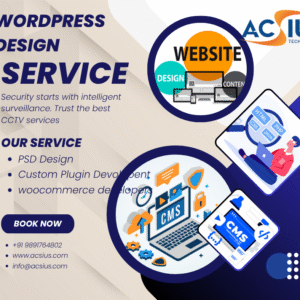HubSpot Shopify Integration: How to Connect eCommerce & CRM for Growth
For growing eCommerce businesses, bridging the gap between customer relationship management and online sales is no longer optional. Integrating HubSpot Shopify allows businesses to centralize data, enhance marketing automation, and improve customer experiences. By connecting Shopify’s store management with HubSpot CRM, companies can achieve better visibility into customer journeys, streamline marketing campaigns, and optimize sales operations.
Why Businesses Use HubSpot Shopify Integration
Centralized Data Management
One of the biggest challenges for online stores is managing customer information spread across multiple platforms. HubSpot Shopify integration syncs order details, customer profiles, and purchase histories, giving businesses a single source of truth.
Improved Marketing Automation
HubSpot workflows allow businesses to automatically send personalized emails, abandoned cart reminders, and targeted promotions based on Shopify purchase behavior.
Enhanced Sales Insights
By analyzing Shopify transaction data within HubSpot, sales teams can identify top-performing products, high-value customers, and recurring revenue opportunities.
Key Benefits of HubSpot Shopify Integration
1. Streamlined Customer Journey Tracking
From the first website visit to a completed Shopify purchase, HubSpot provides a 360-degree view of the customer lifecycle. This insight helps businesses segment audiences and run campaigns with higher conversion potential.
2. Automated Abandoned Cart Recovery
With HubSpot, you can set up automated abandoned cart workflows. Customers who leave items behind in their Shopify cart can receive personalized follow-up emails, increasing recovery rates.
3. Targeted Upselling and Cross-Selling
Integration allows businesses to recommend complementary products and encourage repeat purchases directly through HubSpot-driven campaigns.
4. Accurate Revenue Attribution
Businesses can connect Shopify sales to HubSpot’s attribution reporting. This makes it easier to track which campaigns, channels, and content drive the most revenue.
5. Better Customer Retention
HubSpot’s CRM captures customer engagement data. Combined with Shopify purchase history, it enables personalized loyalty campaigns, helping businesses increase lifetime customer value.
How to Connect HubSpot Shopify
Step 1: Install the HubSpot Shopify App
Start by installing the official HubSpot Shopify app from the HubSpot App Marketplace.
Step 2: Sync Customer and Order Data
Once connected, Shopify order history, product details, and customer records automatically sync with HubSpot.
Step 3: Set Up Marketing Workflows
Create email sequences for new customers, repeat buyers, or cart abandoners directly within HubSpot.
Step 4: Track Performance in Dashboards
Use HubSpot dashboards to measure sales performance, campaign ROI, and customer engagement with real-time Shopify data.
Advanced Use Cases for HubSpot Shopify Integration
Personalized Product Recommendations
With HubSpot Shopify integration, businesses can leverage purchase history and browsing behavior to recommend products that align with individual preferences. This approach not only drives repeat sales but also helps increase average order value by guiding customers toward relevant items.
Seasonal Campaign Management
Marketers can plan seasonal promotions in advance, segment audiences, and deliver the right offers at the right time. By analyzing historical Shopify sales data within HubSpot, businesses gain insights to run more effective seasonal campaigns.
Segment audiences based on order frequency, product categories, and customer lifetime value.
Loyalty Campaigns
Design targeted loyalty programs by rewarding repeat customers with exclusive offers.
Predictive Lead Scoring
Leverage HubSpot’s AI-driven lead scoring to identify high-value prospects and prioritize engagement.
Post-Purchase Nurturing
Send educational emails, product usage guides, or upsell offers after purchase to strengthen customer relationships.
Common Challenges and How to Overcome Them
Data Duplication
Some businesses face duplicate contact records. HubSpot’s deduplication tools can resolve this issue.
Complex Workflow Setup
Setting up advanced workflows requires strategic planning. Working with experienced HubSpot consultants ensures campaigns are properly configured.
Attribution Misalignment
If Shopify data is not mapped correctly, revenue attribution may be inaccurate. Regular data validation helps maintain reporting accuracy.
Why Partner with Experts for HubSpot Shopify Integration
Implementing HubSpot Shopify integration can be straightforward, but businesses often miss opportunities by only using basic features. Expert consultants, like the team at Mpire Solutions, help organizations design advanced workflows, align eCommerce strategies, and maximize ROI from the integration.
Conclusion
In today’s competitive eCommerce environment, connecting CRM insights with online store activity is essential for growth. The HubSpot Shopify integration empowers businesses to automate repetitive processes, improve customer relationships, and run data-driven campaigns that directly impact revenue. Whether you’re a small business aiming to scale or an established brand optimizing customer lifetime value, investing in this integration ensures long-term success. By aligning marketing, sales, and service within a single platform, businesses can make smarter decisions and deliver experiences that keep customers coming back.
HubSpot Shopify integration is more than just connecting two platforms—it’s about creating a connected ecosystem that drives customer engagement and business growth. By centralizing data, automating campaigns, and gaining deeper sales insights, businesses can deliver better experiences while boosting revenue.
FAQs
1. What does HubSpot Shopify integration do?
It connects Shopify store data with HubSpot CRM, enabling businesses to sync orders, customers, and products for marketing and sales automation.
2. Is HubSpot Shopify integration free?
Yes, HubSpot offers a free integration app, though advanced features may require paid HubSpot plans.
3. Can I track Shopify revenue inside HubSpot?
Yes, Shopify sales automatically sync with HubSpot, allowing you to track revenue and campaign attribution.
4. How does HubSpot help with abandoned carts?
HubSpot lets you create automated workflows that send reminder emails to customers who left items in their Shopify cart.
5. Do I need a consultant for HubSpot Shopify integration?
Basic integration is simple, but for advanced automation, custom workflows, and accurate reporting, working with a HubSpot consultant is highly recommended.



